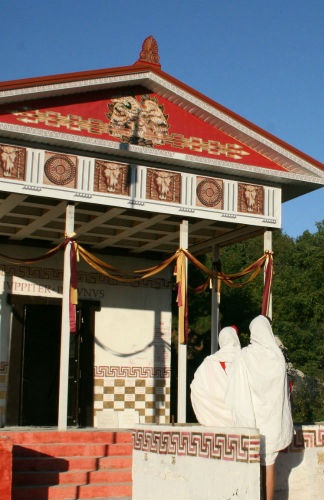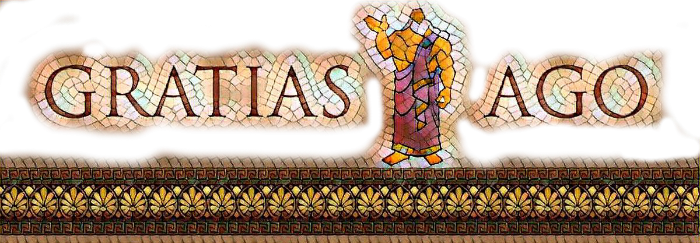
Today it is Dies Nefastus Publicus – the day reserved for religious holidays. They are almost like Dies NEFASTI, but administrative activities must not be performed during them. It is not recommended to perform any kind of physical labor. So, if you want to hang out with your fellow-Romans – don’t talk about serious matters – just gather together and praise a God or a Goddess to whom this specific day is dedicated. Oh! And don’t forget to give your slaves a day-off!
It is the 13th day before Kalendae Martiae.
It is the B nundial day, the 5th day before Nundinae – the market day this year.
In Roman mythology and religion, Quirinus is an early god of the Roman state. In Augustan Rome, Quirinus was also an epithet of Janus, as Janus Quirinus. The name of god Quirinus is recorded across Roman sources as Curinus, Corinus, Querinus, Queirinus and QVIRINO, also as fragmented IOVI. CYRIN[O]. The name is also attested as a surname to Hercules as Hercules Quirinus. The name Quirinus probably stems from Latin quiris, the name of Roman citizens in their peacetime function. Since both quiris and Quirinus are connected with Sabellic immigrants into Rome in ancient legends, it may be a loanword.[6] The meaning “wielder of the spear” (Sabine quiris, ‘spear’, cf. Janus Quirinus), or a derivation from the Sabine town of Cures, have been proposed by Ovid in his Fasti 2.477-480. Some scholars have interpreted the name as a contraction of *Co-Virinus (originally the protector of the community, cf. curia < *co-viria), descending from an earlier *Co- Wironos, itself from the Proto-Indo-European noun *wihrós (“man”).







